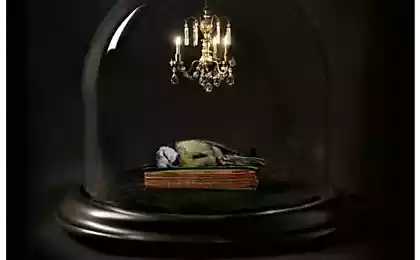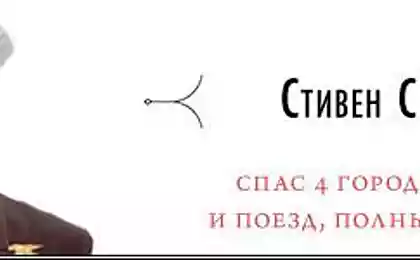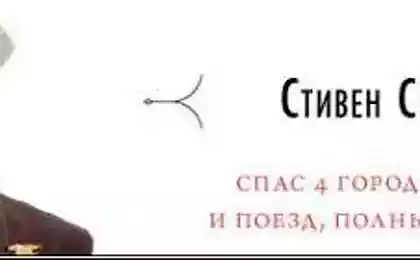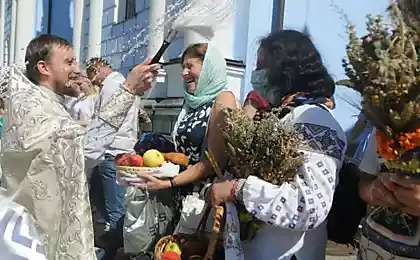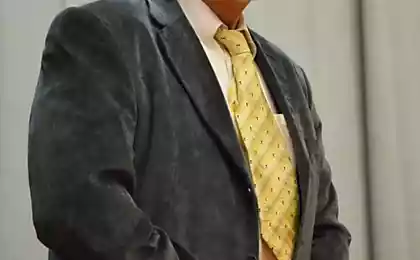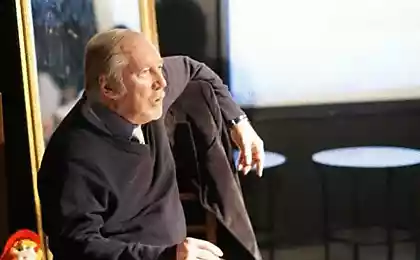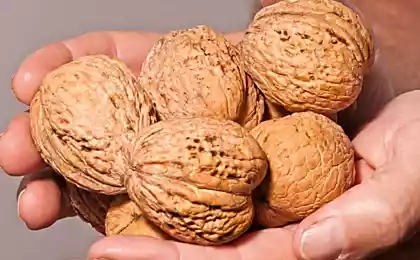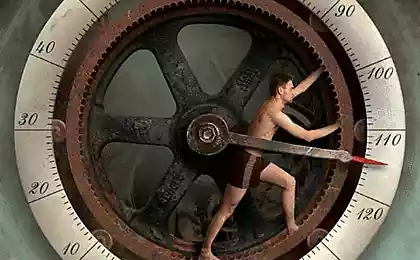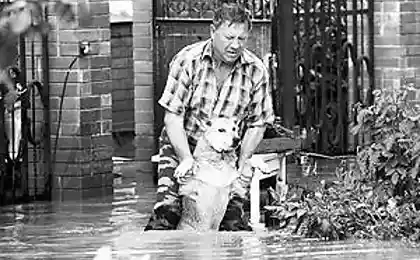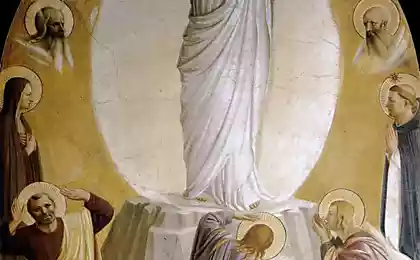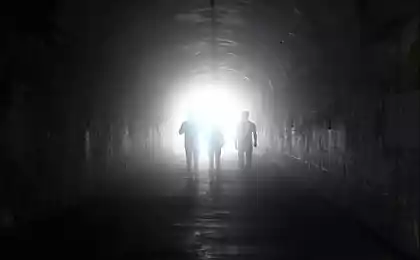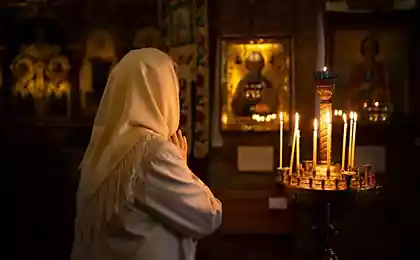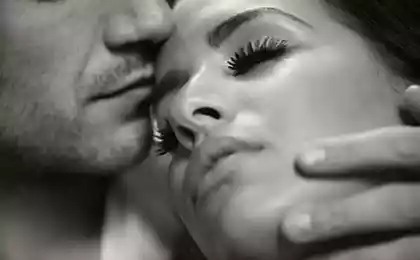796
This man saved from death 669 children and did not tell anyone about this
1 July 2015 at the age of 106 years died Sir Nicholas Winton - the man who saved from the death of 669 children who were killed in Nazi concentration camps during the Holocaust. Site publishes an article about the life of this great man with a big bukvy.Etot Englishman 50 years not a word no one spoke about how in 1939 he had brought from the German-occupied Czechoslovakia 669 children, condemned to death. About his exploits became known by accident - in 1988, his wife was looking for something in the attic of their house and found an old album with children's photos, documents, almost erased records. Do not be found - the world never would have known about this amazing
«rescue operation."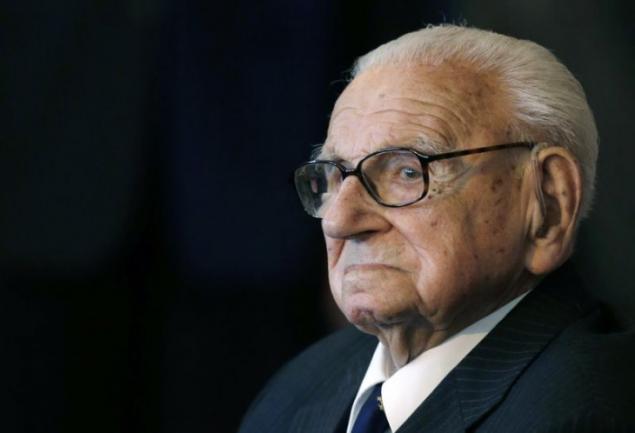
«Skiing can not take" In December 1938, Nicolas worked as a stockbroker in London. Going to spend a vacation in Switzerland for skiing. But a sudden call from a friend, Martin Blake, who worked in Prague in the British Committee for Refugees from Czechoslovakia. Blake asked Wynton cancel leave and come to Prague - there is, say, a very important thing. "Skiing, - said - can not take»
. Prague really turned out not to ski. Arriving there, Winton saw the huge refugee camps of Hitler had just occupied the Sudetenland. What he saw was so terrible, that Nicholas was in Prague. After the "Kristallnacht" in 1938, when the Nazis killed almost all Jewish shops, homes, synagogues, German Jews fled to the Czech Republic, but the Nazis occupied her. Among these people was a lot of children. And Winton decided that I should rescue them.
Just over there was no one - British Committee for Refugees from Czechoslovakia was not engaged in children, saving only the elderly and the disabled. Winton almost single-handedly created a program for the removal of children from Czechoslovakia. In the hotel room in Prague, he made a kind of store. There came desperate to save their children's parents - ready to send their children to strangers, leave them forever, just to save their lives. Nicholas wrote the children's names, their collected photos, line up in the head means taking children. Its number was a huge turn - no wonder that the Nazis began tailing him. Winton distributed Nazi ranks bribes left and right - if only a little bit of time to win
.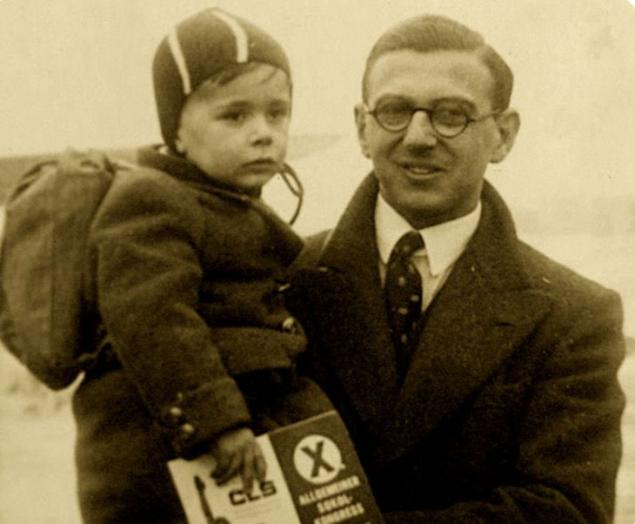
He managed to register about 900 children that it was urgent to take out of Czechoslovakia. In early 1939 he left his place of two friends returned to London. There, he and a few volunteers - including his mother - called themselves "British Committee for Refugees from Czechoslovakia. The children's ward. " And on behalf of the Committee Winton took the feverish search for adoptive families and money, which had to be very much. By law, each adoptive family had to guarantee the care of the child until he reaches the age of 17, and a deposit of £ 50 in case the child will have to send back to their homeland.
Winton went to the newspapers and posted there search advertisements of foster families, asking for money. Hundreds of families have agreed to adopt children, many donated money. They were not enough, but the difference Winton curtains of its own. He then appealed to the Ministry of Internal Affairs of Great Britain, to the children issued visas. But officials were slow to answer, and time is running out very much. "It was in a matter of months before the war began - he later recalled. - So we had a visa
fake. " And in Prague at this time Wynton friend, Trevor Chadwick, "friends" with the Gestapo official Karl Bemelburgom - gave him a bribe to any Nazi officials above the rank nor the Czechoslovak railway authorities did not stop the train with children. The Gestapo was useful -. Regularly transferred money who needs and even helped to forge documents for children
Seven "children's train," March 14, 1939, a few hours before Hitler gave the land of Bohemia and Moravia from the German protectorate, the first train carrying 20 children left Prague. Survivors told then what horror was at the station: the children cried and begged them not to send anywhere, parents could not tear them away
. Nicholas Winton and his comrades organized eight such trains, which have taken out the remaining children. Trains went through Nuremberg and Cologne to the Dutch port of Hook of Holland, then crossed the North Sea by boat to Essex, then back on the train to London. There Winton and foster families met the children. Each refugee has a small sewn die with the name on the clothing. But only 7 of 8 trains were able to get to a secure London - so saved 669 children. About 250 children, the latter group were in the carriages when the September 1, 1939, Hitler attacked Poland. The borders were closed, and the fate of these children is unknown. Apparently, they all died in concentration camps. Vera Gissing, co-published in 2001 the book "Nicholas Winton and the rescued generation," she survivors on the fifth "children's train" in June 1939, writes: "Of the 15 000 Czech Jewish children sent by the Germans in the camp, only a handful survived. Most of my generation, the survivors of Czech Jews saved by Winton. " Almost all children are saved by the end of the war they have been orphaned - their parents were killed in Auschwitz, Bergen-Belsen, Theresienstadt
. After the war, many of them stayed in the UK. But most have returned to their homeland or to emigrate to Israel, Australia, USA. Today these rescued children for 70-80 years, and they call themselves "the children Winton»
.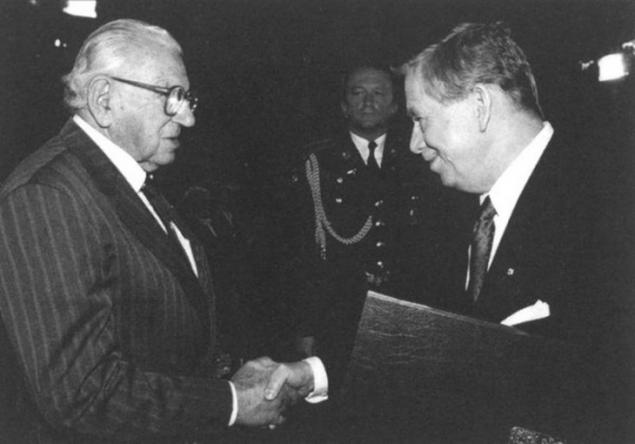
... The story, by the way, that he almost never Nicholas came to the children during the arrival of trains to London. He stood and watched from afar
"What if no one but you to save the children ..." Among the rescued children -. Director Karel Reisz "(" The French Lieutenant's Woman "," Isadora "), an American physicist, Nobel laureate Walter Kohn, an American astronomer, Nobel laureate Arno Penzias, a human rights activist, translator at the Nuremberg "The process of physicians' Hedy Epstein, geneticist, pediatrician Renata Lax, the founder of the Israeli Air Force Hugo Marom ...
Widely known Prague activities Wynton received in 1988 after his wife Winton found a notebook in 1939 with the addresses of British families who took the rescued children. For all addresses were sent letters, and about 80 survivors were thus found. Talk show That's Life! on BBC TV channel invited Wynton as a spectator in the studio. Suddenly the talk show host for his knapsack Esther told his story, and then asked them to climb the rescued people - in a small studio they gathered more than 20.
Gradually, the fate of Winton is becoming more widely known. In September 1994, Nicholas Winton has received a letter of thanks from the President of Israel, Ezer Weizman. In 1998 he was awarded the Order of the Czech Masaryk. In 2002, Queen Elizabeth II knighted him. In 2014, at the age of 105 years, he was awarded the highest award of the Czech Republic - the Order of the White lva.ё
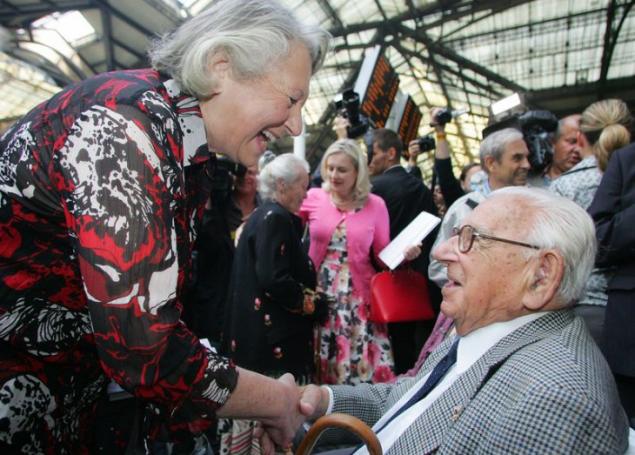
September 1, 2009, in honor of the 70th anniversary of the last "Kindertransport" was planned for September 3, 1939, but never implemented because of the outbreak of the Second World War, a special "Train Wynton" consisting of a locomotive and cars operated in 1930, traveled to Prague Central station in London on the route "Kindertransport". In London, the train passengers - surviving "Winton children" and their relatives - he met Wynton. During the departure of the train at the Central railway station in Prague, was inaugurated a monument to Winton.
... When Nicholas asked why he decided on such a risky business, he just shrugged his shoulders: "Some people do not care about the fact that children in mortal danger and they need to be saved immediately, someone is. < What if you just have to save them -. Simply no longer »
via www.pravmir.ru/nikolas-uinton-chelovek-spasshiy-ot-smerti-pochti-700-detey-1/
«rescue operation."

«Skiing can not take" In December 1938, Nicolas worked as a stockbroker in London. Going to spend a vacation in Switzerland for skiing. But a sudden call from a friend, Martin Blake, who worked in Prague in the British Committee for Refugees from Czechoslovakia. Blake asked Wynton cancel leave and come to Prague - there is, say, a very important thing. "Skiing, - said - can not take»
. Prague really turned out not to ski. Arriving there, Winton saw the huge refugee camps of Hitler had just occupied the Sudetenland. What he saw was so terrible, that Nicholas was in Prague. After the "Kristallnacht" in 1938, when the Nazis killed almost all Jewish shops, homes, synagogues, German Jews fled to the Czech Republic, but the Nazis occupied her. Among these people was a lot of children. And Winton decided that I should rescue them.
Just over there was no one - British Committee for Refugees from Czechoslovakia was not engaged in children, saving only the elderly and the disabled. Winton almost single-handedly created a program for the removal of children from Czechoslovakia. In the hotel room in Prague, he made a kind of store. There came desperate to save their children's parents - ready to send their children to strangers, leave them forever, just to save their lives. Nicholas wrote the children's names, their collected photos, line up in the head means taking children. Its number was a huge turn - no wonder that the Nazis began tailing him. Winton distributed Nazi ranks bribes left and right - if only a little bit of time to win
.

He managed to register about 900 children that it was urgent to take out of Czechoslovakia. In early 1939 he left his place of two friends returned to London. There, he and a few volunteers - including his mother - called themselves "British Committee for Refugees from Czechoslovakia. The children's ward. " And on behalf of the Committee Winton took the feverish search for adoptive families and money, which had to be very much. By law, each adoptive family had to guarantee the care of the child until he reaches the age of 17, and a deposit of £ 50 in case the child will have to send back to their homeland.
Winton went to the newspapers and posted there search advertisements of foster families, asking for money. Hundreds of families have agreed to adopt children, many donated money. They were not enough, but the difference Winton curtains of its own. He then appealed to the Ministry of Internal Affairs of Great Britain, to the children issued visas. But officials were slow to answer, and time is running out very much. "It was in a matter of months before the war began - he later recalled. - So we had a visa
fake. " And in Prague at this time Wynton friend, Trevor Chadwick, "friends" with the Gestapo official Karl Bemelburgom - gave him a bribe to any Nazi officials above the rank nor the Czechoslovak railway authorities did not stop the train with children. The Gestapo was useful -. Regularly transferred money who needs and even helped to forge documents for children
Seven "children's train," March 14, 1939, a few hours before Hitler gave the land of Bohemia and Moravia from the German protectorate, the first train carrying 20 children left Prague. Survivors told then what horror was at the station: the children cried and begged them not to send anywhere, parents could not tear them away
. Nicholas Winton and his comrades organized eight such trains, which have taken out the remaining children. Trains went through Nuremberg and Cologne to the Dutch port of Hook of Holland, then crossed the North Sea by boat to Essex, then back on the train to London. There Winton and foster families met the children. Each refugee has a small sewn die with the name on the clothing. But only 7 of 8 trains were able to get to a secure London - so saved 669 children. About 250 children, the latter group were in the carriages when the September 1, 1939, Hitler attacked Poland. The borders were closed, and the fate of these children is unknown. Apparently, they all died in concentration camps. Vera Gissing, co-published in 2001 the book "Nicholas Winton and the rescued generation," she survivors on the fifth "children's train" in June 1939, writes: "Of the 15 000 Czech Jewish children sent by the Germans in the camp, only a handful survived. Most of my generation, the survivors of Czech Jews saved by Winton. " Almost all children are saved by the end of the war they have been orphaned - their parents were killed in Auschwitz, Bergen-Belsen, Theresienstadt
. After the war, many of them stayed in the UK. But most have returned to their homeland or to emigrate to Israel, Australia, USA. Today these rescued children for 70-80 years, and they call themselves "the children Winton»
.

... The story, by the way, that he almost never Nicholas came to the children during the arrival of trains to London. He stood and watched from afar
"What if no one but you to save the children ..." Among the rescued children -. Director Karel Reisz "(" The French Lieutenant's Woman "," Isadora "), an American physicist, Nobel laureate Walter Kohn, an American astronomer, Nobel laureate Arno Penzias, a human rights activist, translator at the Nuremberg "The process of physicians' Hedy Epstein, geneticist, pediatrician Renata Lax, the founder of the Israeli Air Force Hugo Marom ...
Widely known Prague activities Wynton received in 1988 after his wife Winton found a notebook in 1939 with the addresses of British families who took the rescued children. For all addresses were sent letters, and about 80 survivors were thus found. Talk show That's Life! on BBC TV channel invited Wynton as a spectator in the studio. Suddenly the talk show host for his knapsack Esther told his story, and then asked them to climb the rescued people - in a small studio they gathered more than 20.
Gradually, the fate of Winton is becoming more widely known. In September 1994, Nicholas Winton has received a letter of thanks from the President of Israel, Ezer Weizman. In 1998 he was awarded the Order of the Czech Masaryk. In 2002, Queen Elizabeth II knighted him. In 2014, at the age of 105 years, he was awarded the highest award of the Czech Republic - the Order of the White lva.ё

September 1, 2009, in honor of the 70th anniversary of the last "Kindertransport" was planned for September 3, 1939, but never implemented because of the outbreak of the Second World War, a special "Train Wynton" consisting of a locomotive and cars operated in 1930, traveled to Prague Central station in London on the route "Kindertransport". In London, the train passengers - surviving "Winton children" and their relatives - he met Wynton. During the departure of the train at the Central railway station in Prague, was inaugurated a monument to Winton.
... When Nicholas asked why he decided on such a risky business, he just shrugged his shoulders: "Some people do not care about the fact that children in mortal danger and they need to be saved immediately, someone is. < What if you just have to save them -. Simply no longer »
via www.pravmir.ru/nikolas-uinton-chelovek-spasshiy-ot-smerti-pochti-700-detey-1/
7 keys to the novel "The Master and Margarita", revealing the secrets of this book
Ural student said that proved the existence of life after death by the formula
